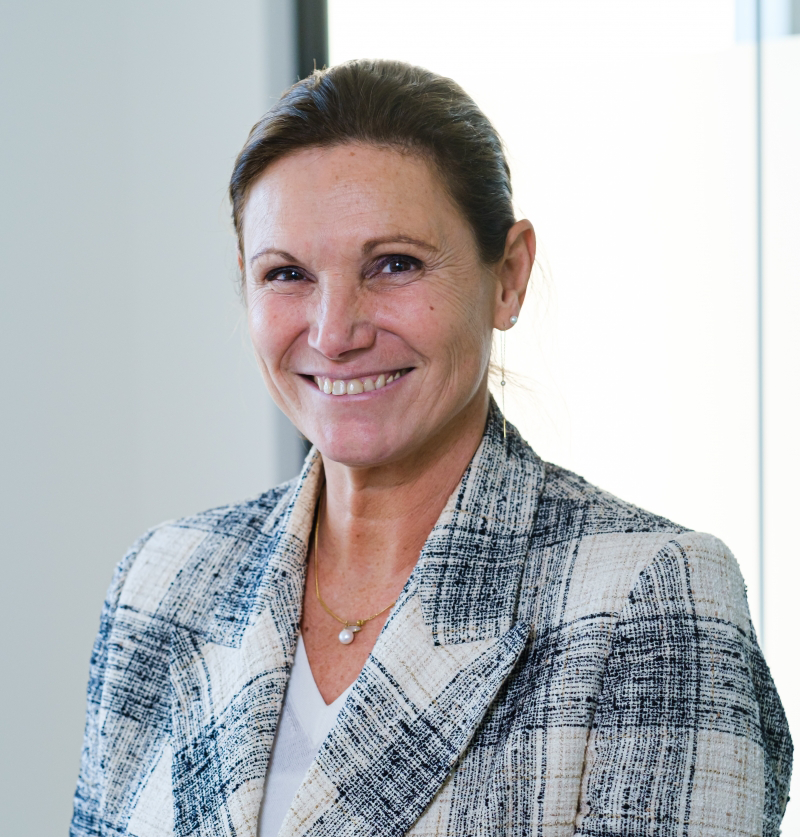The current momentum around circular economy monitoring and the evolving role of Port Authorities (PAs) in sustainability reporting is an excellent opportunity to clarify the direction in which this should be integrated into port performance systems. This is the time to establish the right framework and context to evolve towards a mature and integrated circular economy monitoring system in ports. This TRACK focuses not only on clarifying the challenge or simply gaining insights, but also on making these insights actionable.
Giving more clarity and direction to the challenge
Monitoring progress towards shared circular goals is not yet clearly defined and needs to be better understood. The concepts of ‘circular economy and ports’ and ‘circular economy and monitoring’ are not yet fully documented, researched and implemented. Therefore, their combination is certainly at an early stage.
That’s why, as a first step, Circular Flanders commissioned an exploratory study to bring more clarity, structure and direction to this relatively open question of monitoring circularity in ports. Based on scientific knowledge and tested in (international) practice, the exploration resulted in actionable insights and a first framework with a pragmatic set of indicators for Port Management Bodies (PMBs). At the same time, the next steps for the gradual advancement of circularity ambitions and performance were formulated.

Dr. Alain Verbeke is an Adjunct Professor at the Solvay Business School, Vrije Universiteit Brussel. He has been a Visiting Professor at the Université Catholique de Louvain, an Associate Fellow of Templeton College, University of Oxford, and an Academic Associate of the Centre for International Business and Management, Judge Business School, University of Cambridge. He holds the McCaig Research Chair in Management at the Haskayne School of Business, University of Calgary and is the Alan M. Rugman Memorial Fellow at the Henley Business School, University of Reading. He has served as Editor-in-Chief of the Journal of International Business Studies and is a Fellow of the Academy of International Business and the European International Business Academy.
Dr. Verbeke’s academic research agenda focuses on the governance of strategic interdependences in the realm of firm-level strategy and public policy making. He has unique expertise in the broad governance challenges facing internationally operating firms and large-scale infrastructure providers.
Dr. Verbeke has published 40 books, 90 book chapters and 130 journal articles that have been cited over 27,000 times. He has directed over 150 advisory studies, mostly large-scale project evaluations, feasibility studies and strategic masterplans with significant social and environmental impacts, and implications for sustainability.
Contact: alain.verbeke@vub.be
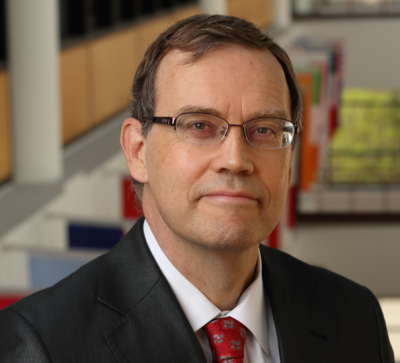
Alain Verbeke
Professor
Prof. dr. Elvira Haezendonck (Vrije Universiteit Brussel and Solvay Business School) is Full Professor at the Vrije Universiteit Brussel (VUB) and Visiting Professor at the University of Antwerp (UA), as well as guest lecturer at Erasmus University of Rotterdam (Maritime Economics and Logistics). Her research covers topics in the field of sustainable strategies and management, applied to infrastructure, ports and complex projects.
She has published various articles, books and book chapters in relation to sustainable strategies, project evaluation, competitive analysis and stakeholder management, and since 1996, she has been involved in over 100 national and EU research projects on for example strategic analyses and impact assessments in/for ports and infrastructure, and on complex project management. She teaches several strategy and (project) management courses on both bachelor and master level.
She also takes up multiple board positions within and beyond academia. In 2022 Prof. dr. Elvira Haezendonck was elected as first female president of the International Association of Maritime Economists (IAME), the global academic association of maritime economists. Since 2010 she has (co-)promoted two consecutive Research Chairs on Public-Private Partnerships at VUB, and currently she is in the lead of a third research chair on Infrastructure Asset Management, sponsored by Antea, Arcadis, Sweco and Tractebel.
Contact: elvira.haezendonck@vub.be
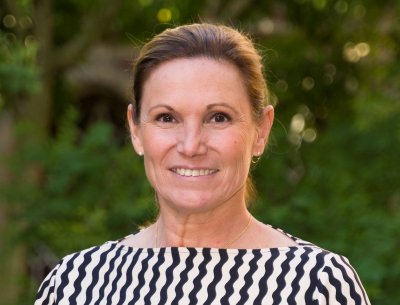
Elvira Haezendonck
Professor
Prof. dr. Michaël Dooms is affiliated as associate professor with the Solvay Business School at the University of Brussels (VUB) where he teaches courses in the broad field of Strategic Management. He teaches port management courses in international programs at the Erasmus University Rotterdam and at the Athens University of Economics and Business. Prof. Dooms is member of PortEconomics.eu and a member of the Port Performance Research Network (PPRN), where he co-animates the port authority strategy group.
His other research interests are in the fields of complex project evaluation in the infrastructure sector, international business, corporate strategy and cluster competitiveness. He has published in leading scientific journals such as the International Journal of Project Management, Research in Transportation Business and Management, Maritime Policy and Management, Maritime Economics and Logistics and the Journal of Transport Geography.
Prof. Dooms worked as a project manager and researcher on several research and consulting projects, which need a multi-disciplinary (integration of technical, economic and environmental criteria) and multi-stakeholder (public and private sector, local communities) approach, such as project evaluations, long term master plans and visions (for the ports of Antwerp, Zeebrugge and Brussels), the expansion of the DHL-hub at Brussels National Airport, the storage of nuclear waste and (re)development of brown- and greenfield economic zones. Within the EU framework research programs, he was the coordinator of the collaborative project to create a European Port Observatory measuring the industry’s performance (PORTOPIA, 2013-2017).
Contact: michael.dooms@vub.be

Michael Dooms
Professor
Dr. Peter de Langen is the owner and principal consultant of Ports & Logistics Advisory, based in Malaga, Spain. Peter de Langen is part-time professor at Copenhagen Business School and held a part-time position as professor Cargo Transport & Logistics, at Eindhoven University of Technology.
From 2007 to 2013, Peter worked at Port of Rotterdam Authority (PoR), department Corporate Strategy as senior advisor. From 1997 to 2007, he worked at Erasmus University Rotterdam (EUR). Peter is co-director of the knowledge dissemination platform www.porteconomics.eu, develops training events and regularly speaks at industry conferences. He authored more than 50 peer reviewed articles as well the book ‘Towards a better Ports Industry’.
In 2013, Peter founded Ports & Logistics Advisory (PLA, see www.pl-advisory.com). PLA aims to provide high impact contributions to projects and organisations and is active in boardroom advisory, research and executive education in ports & logistics worldwide. PLA works for leading companies and governments in the ports industry, amongst other Port of Rotterdam, Port of Barcelona, the European Seaports Organisation, the World Bank, the Asian Development Bank, United Nations and the Panama Canal Authority.
Contact: peter@pl-advisory.com

Peter de Langen
Professor
Lynn Faut is a doctoral candidate at the Free University of Brussels (VUB). She studied Business Engineering at Solvay Business School where she graduated summa cum laude and received the 2021 Excellence Award. Since then, she joined the Management and Strategy Team at VUB as a PhD candidate where she researches circular economy monitoring in ports.
Lynn has always been passionate about the circular economy and tries to integrate it into her daily lifestyle.
Contact: lynn.faut@vub.be

Lynn Faut
PhD Researcher
Fanny Soyeur graduated in 2019 as a Business Engineer at the Solvay Business School, VUB. She has been working 3 years at the VUB under Professor Michael Dooms, where she coordinates and develops the internship program of the Solvay Business School, the foreign trade missions as a thesis for business engineers and as a practical course for other university wide students and the international business project course.
Her PhD research deals the social aspect of transitions in seaports. She has worked as a researcher on several research and consulting projects, such as a research on the economic and strategic impact of standards in the Belgian economy from NBN in 2019, a socio-economic study of the companies of the Port of Brussels in 2021, and an exploratory research on circular economy monitoring in ports (Vlaanderen Circulair, 2022).
Contact: fanny.soyeur@vub.be
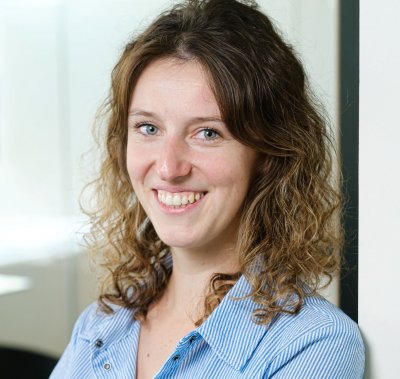
Fanny Soyeur
PhD Researcher
Get to know us
Meet our Research Team
The European Centre for Strategic Analysis (ECSA), Vrije Universiteit Brussel (VUB – Social Sciences & Solvay Business School) and Ports and Logistics Advisory (PLA) took up the Circular Ports Monitor exploratory study.
How insights and first set of indicators were generated
The conceptualisation of circularity in ports (step 1) provided a first framework on which to build the research. Next, the development of the LONGLIST of indicators based on a review of resources and a cross-case analysis of port objectives (Step 2) provided the necessary inputs for the gap analyses (Step 3). Expert feedback cycles (step 4) resulted in the INTERIM SHORTLIST of indicators to be used in a try-out in a real port context (step 5), where the feasibility of the indicators was tested. After the roll-out, a FINAL SHORTLIST of 12 indicators was delivered, each of which was extensively tested for its relevance to the circular economy and ports, its link to port objectives and its feasibility.
Exploratory steps undertaken
1
Setting the scene
2
Review of sources
3
Gap analysis
4
Feedback cycles
5
Try-out in real port context
1. Setting the scene
(November – December 2021)
Given the complex challenge, exploratory research was chosen as the method of use. First and foremost, it was necessary to know the context well enough and provide a robust framework to help guide the exploratory steps and the choices to be made.
From the beginning of the exploration, the Research Team tried to find the balance between building on and improving already existing knowledge, concepts and experience (lean) on the one hand, and working adaptively on actionable insights (agile) during the process (November 2021 – June 2022) on the other.
Although the use of literature on circular indicators was global, the gap-analysis with port objectives was based on the evolving circular port ambition of Belgian ports, to ensure a necessary match of objectives with indicators. The Belgian Ports are diverse in typology and some could be considered as circular frontrunners, at least in terms of media attention and growth of the number of circular projects. These cases were then assumed to serve well as best practices to ultimately provide a generic set of indicators that could serve more ports to monitor their circular activity. But it can also limit the use of the entire set of indicators in each port’s context, and it is possible because of this approach that certain indicators are not (yet) relevant for certain ports in the world. The idea is that when measuring some of the indicators from this set, at least on an identical measurement basis and with consistent data, the indicator becomes relevant to compare on a larger scale.
2. Review of sources
(January – February 2022)
A systematic approach was taken to reach a long list of CE indicators for ports. The starting point was the collection of available and accessible CE indicators from state-of-the-art CE sources. These were indicators which were not deliberately developed for ports or port activities in particular but rather for the circular economy in general (a top-down approach).
Next, existing CE indicators, which are already being monitored by ports, were considered in a bottom-up way, along with reports issued by port policy-oriented organisations. A longlist of 308 CE indicators was structured into CE and value chain themes. Based on reflections of the Research Team, as well as port and CE experts of a Reflection Group, similar indicators were then bundled where possible and remaining indicators were checked upon or translated towards port relevance. This resulted in a longlist of 32 CE indicators.
3. Gap analysis
(February – April 2022)
Circular economy objectives of Belgian PMBs were analysed extensively through their available policy and strategy documents, such as masterplans and strategic vision reports. Given that indicators should match with objectives, a gap analysis was performed at three levels.
Gap analysis 1: studied which CE indicators from the LONGLIST are already being reported by ports, and therefore already pass the feasibility test.
Gap analysis 2: identified which LONGLIST indicators have a matching CE objective, on which ports have agreed upon with stakeholders and external organisations.
Gap analysis 3: studied the matches between the LONGLIST indicators and the Belgian ports’ own objectives. These objectives are those which the port imposes on itself and communicates through its strategic documents.
Gap analyses 2and 3 together allow for the categorization of the longlist of indicators, while the gap analysis 1 strengthens the value of those indicators in their practical use.
4. Feedback cycles
(April – May 2022)
The expert feedback cycles were not really separate steps, but rather moments woven through the exploration. Still, there was an important moment for the Reflection Group to help focus the step from the indicator SHORTLIST 1.0 to 2.0 in preparation of the feasibility test (Step 5).
Throughout the exploration, the Circular Port Monitor theme was also continuously highlighted at regional and international conferences and workshops, aiming to reach academic and industry professionals. The exploration was also regularly aligned with the development of KPIs for the implementation of the Flemish port strategy.
This open approach contributed to the visibility and awareness of the need and value of CE monitoring in ports, which is vital for the next steps.
5. Try-out in real port context
(May – June 2022)
After developing the LONG LIST of indicators (Step 2), linking the indicators to the ambitions and strategic goals of the ports by means of a gap analysis (Step 3), and analyzing each indicator again by means of an expert focus groups (Step 5), as a last step in the exploratory research, the INTERIM SHORTLIST of 15 suggested indicators (2.0) was tested for their feasibility and measurability in a real frontrunning port context.
During this first try-out, only those indicators relevant in the short term were tested and the focus was on understanding the challenges each indicator would pose when implemented. For 12 out of 15 indicators from the INTERIM SHORTLIST 2.0, it was expected that the necessary data could be sought from the PMB, while the data for the remaining 3 indicators required individual companies (with a circular activity or project) to be contacted. The roll-out revealed that 12 shortlisted circularity indicators passed the feasibility test. This includes 7 highly feasible indicators and 5 indicators with a moderate feasibility.
Result
Framework
to guide the exploratory research
Longlist
of suggested CE indicators
Shortlist 1.0
of suggested CE indicators
Shortlist 2.0
of suggested CE indicators
Final shortlist
of suggested CE indicators
NEXT STEPS
Where to from here?
Alert to new developments
First, the exploration sets the scene and provides a solid basis for initial monitoring of the circular economy in port areas. New developments, as inherent in any transition, will need to be incorporated at a later stage, including: new or higher ambitions of ports / stakeholders with respect to circular economy and thus indicators capturing these new ambitions, as well as new policy efforts, regional drivers and/or resources available to make this happen.
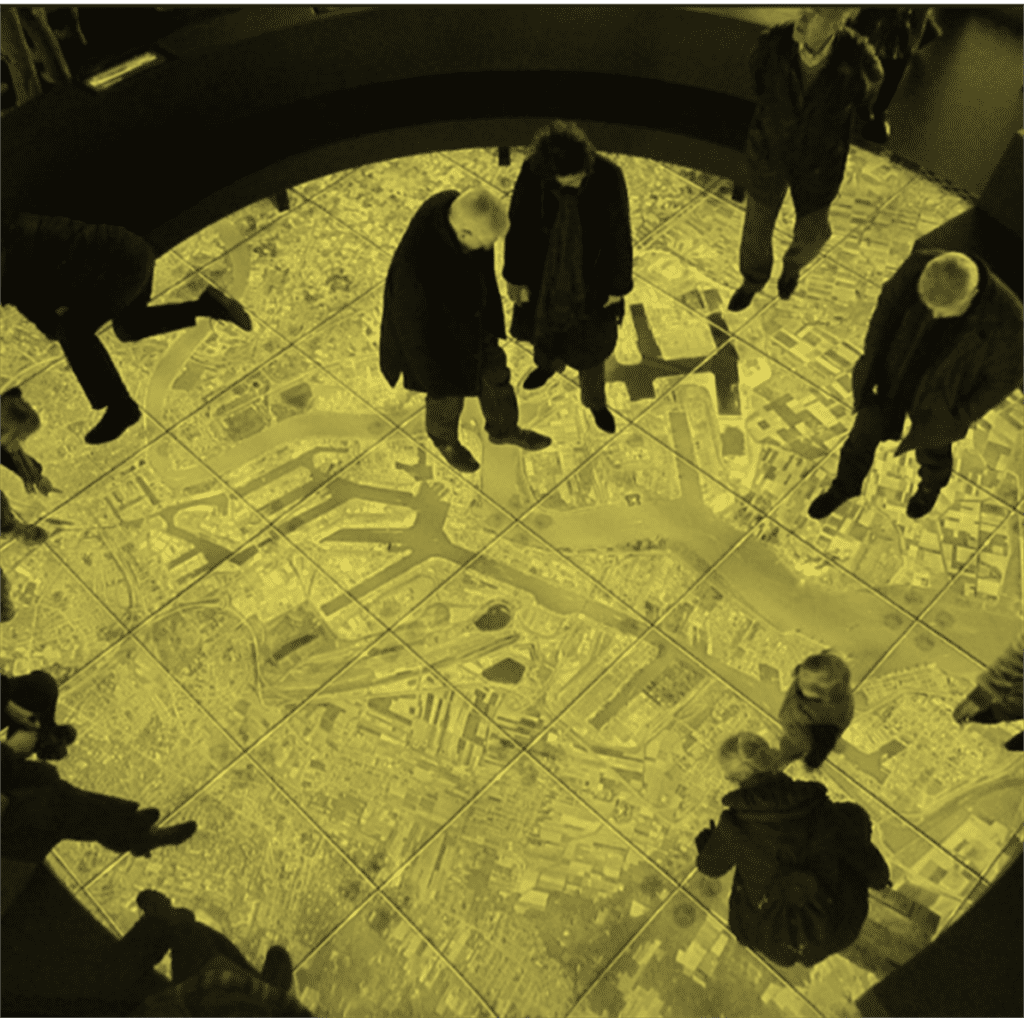
Solving problems on the ground
Second, the exploratory rollout, as presented as an example of a seaport in this study, revealed several challenges in terms of surveillance applications. These practical implications will be explored and recognized, and follow-up research will be needed to solve issues on the ground, and to make a monitoring system or set of indicators widely accepted and implemented.
Feedback loops and learning
Third, the research process may lead to necessary feedback loops. Some findings from later stages may impact choices made in earlier stages of the research process, and require potential adaptations through learning. This initial exploratory research will not cover any dynamic circular ambitions, solutions to implementation issues or feedback loops, but it will express the need to folllow up on these insights in the (near) future.
Selected key pathways as a next step
During the exploratory process, as a result of the research and many interactions, a number of interesting new paths were identified.
The key pathways have been selected as a function of the further development of circular port monitoring, mainly because they are currently seen as the most relevant and immediate opportunities to promote and accelerate the circular ambitions of ports.
1. Building stakeholder support for the CE-monitoring in Flemish (and European) ports.
2. The establishment of a research chair as a non-institutionalised horizontal collaboration between a knowledge institution, a regional public partner and the Flemish port authorities.
3. Analysing the social dimension of the circular transition in ports.
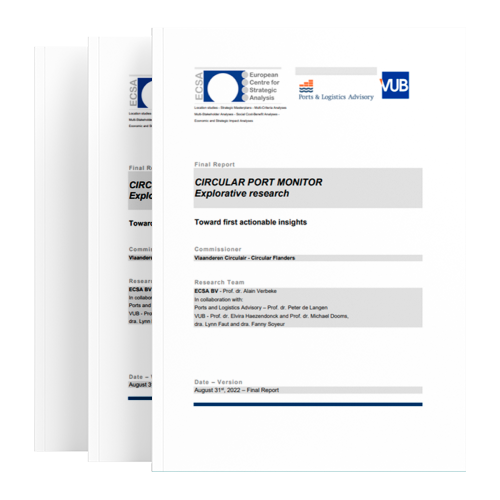
Interested in the exploratory research?
The exploration is recorded in the form of a research notebook in which all the steps and findings of the exploration are carefully documented.
As such, it reads differently than a publication for a wide audience. Still, we want to be as transparent as possible in sharing this information. Therefore everything is open access under the CC BY-NC-ND license. You can request both the final report and the appendices by leaving your personal information.
